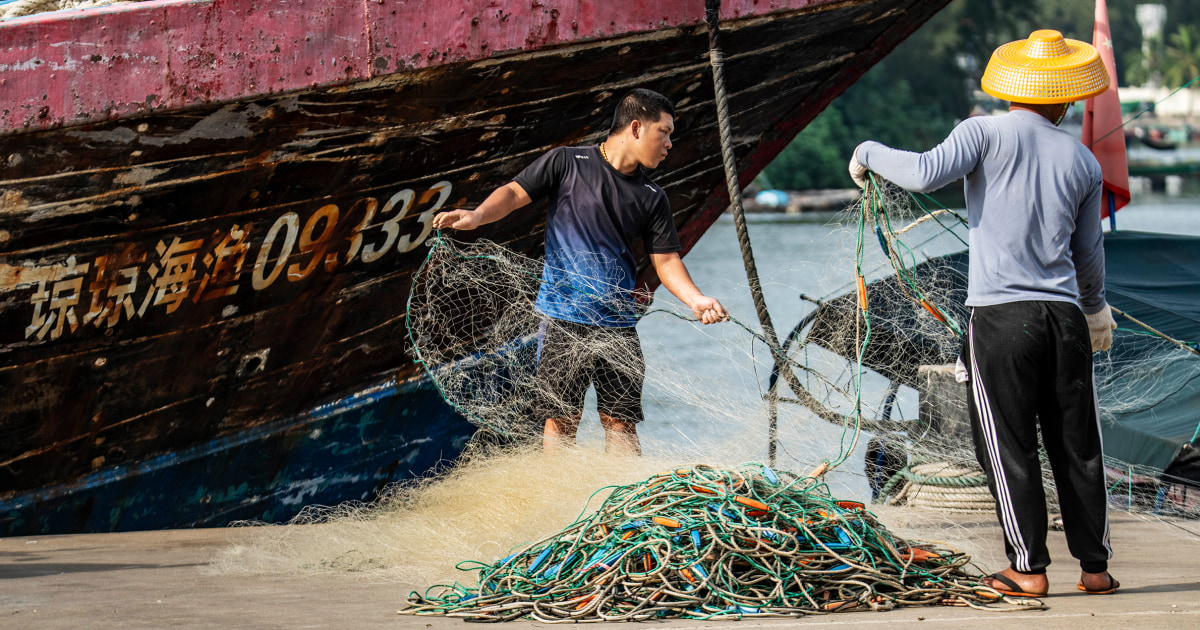Breach of Sanctions: Chinese Fishing Vessels Employ North Korean Crews
A recent investigative report has brought to light a troubling trend: Chinese fishing vessels are allegedly employing North Korean crews, a practice that could represent a significant breach of United Nations sanctions. This revelation not only raises questions about compliance with international laws but also poses serious implications for regional security and the broader geopolitical landscape.
The Context of U.N. Sanctions Against North Korea
The United Nations has imposed stringent sanctions on North Korea in response to its nuclear weapons program and other destabilizing activities. These sanctions aim to limit North Korea’s ability to engage in international trade, particularly in industries that generate revenue for its regime. Fishing has been identified as one of these sectors, where illegal operations can provide much-needed funds for the government.
According to U.N. Security Council resolutions, member states are prohibited from engaging in trade that could benefit North Korea’s military ambitions. This includes restrictions on the export of goods, services, and labor. The employment of North Korean crews on Chinese fishing vessels could be seen as a direct violation of these sanctions, enabling North Korea to circumvent international restrictions.
The Mechanics of the Breach
Chinese fishing vessels have reportedly been hiring North Korean fishermen under the radar. These crews often work under deplorable conditions, facing long hours and minimal pay. Shipowners may prefer North Korean labor due to its cost-effectiveness, as these crews are often willing to work for lower wages compared to their counterparts from other nations.
The use of North Korean labor on Chinese vessels can be attributed to several factors:
- Cost Efficiency: North Korean workers are often cheaper, allowing companies to maximize profits.
- Labor Shortages: The fishing industry often faces labor shortages, particularly in regions that require intensive fishing efforts.
- Operational Flexibility: Hiring North Korean crews allows Chinese vessels to operate more flexibly in international waters, where enforcement of sanctions may be lax.
Implications for International Enforcement
The revelation of Chinese fishing vessels employing North Korean crews directly challenges the effectiveness of international sanctions. It raises critical questions about the mechanisms in place for monitoring and enforcing compliance. While the U.N. has established frameworks for tracking sanctions violations, the complexity of international maritime operations makes enforcement challenging.
Moreover, the maritime domain is vast and often lacks sufficient oversight. The sheer number of fishing vessels operating in international waters complicates the ability of authorities to monitor activities effectively. This situation creates a gray area where illegal practices can flourish with little risk of detection.
Regional Security Considerations
The breach of sanctions not only undermines international law but also poses risks to regional security. North Korea’s economy heavily relies on illicit activities, including illegal fishing. By providing North Korea with a stream of income through these operations, the international community inadvertently supports the regime’s military ambitions.
Furthermore, the collaboration between Chinese vessels and North Korean crews could foster deeper ties between the two nations, potentially leading to increased cooperation in other areas that might threaten regional stability. This could be particularly concerning for neighboring countries, such as South Korea and Japan, which are already wary of North Korea’s aggressive posturing.
The Role of the International Community
Addressing the issue of Chinese vessels employing North Korean crews requires a concerted effort from the international community. Increased collaboration among nations is essential to enhance monitoring and enforcement mechanisms. Here are some potential strategies:
- Enhanced Surveillance: Utilizing advanced technology, such as satellite tracking and drones, to monitor fishing activities in international waters.
- Information Sharing: Establishing a robust framework for sharing intelligence among nations regarding vessels suspected of violating sanctions.
- Stricter Penalties: Imposing harsher penalties on companies found to be in violation of U.N. sanctions to deter future breaches.
Looking Ahead: Solutions and Optimism
While the situation may seem dire, there is room for optimism. Increased awareness of the issue could lead to stronger international cooperation and more effective enforcement of sanctions. Engaging with stakeholders in the fishing industry to promote ethical practices is also crucial. Here are a few proactive approaches:
- Promoting Ethical Fishing: Encouraging fishing companies to adopt practices that comply with international regulations and respect human rights.
- Supporting North Korean Defectors: Providing alternatives for North Korean workers, such as resettlement programs, can reduce reliance on exploitative labor.
- International Dialogues: Facilitating discussions among nations to address the root causes of North Korea’s economic reliance on illegal activities.
Conclusion
The employment of North Korean crews on Chinese fishing vessels exemplifies the complexities of enforcing international sanctions in a globalized economy. It underscores the need for rigorous oversight and cooperation among nations to prevent exploitation and uphold international law. As stakeholders work together to address this issue, there is hope for a future where compliance with sanctions becomes the norm rather than the exception. The path forward may be fraught with challenges, but with determination and collaboration, a solution is within reach.
See more CNN Headline


